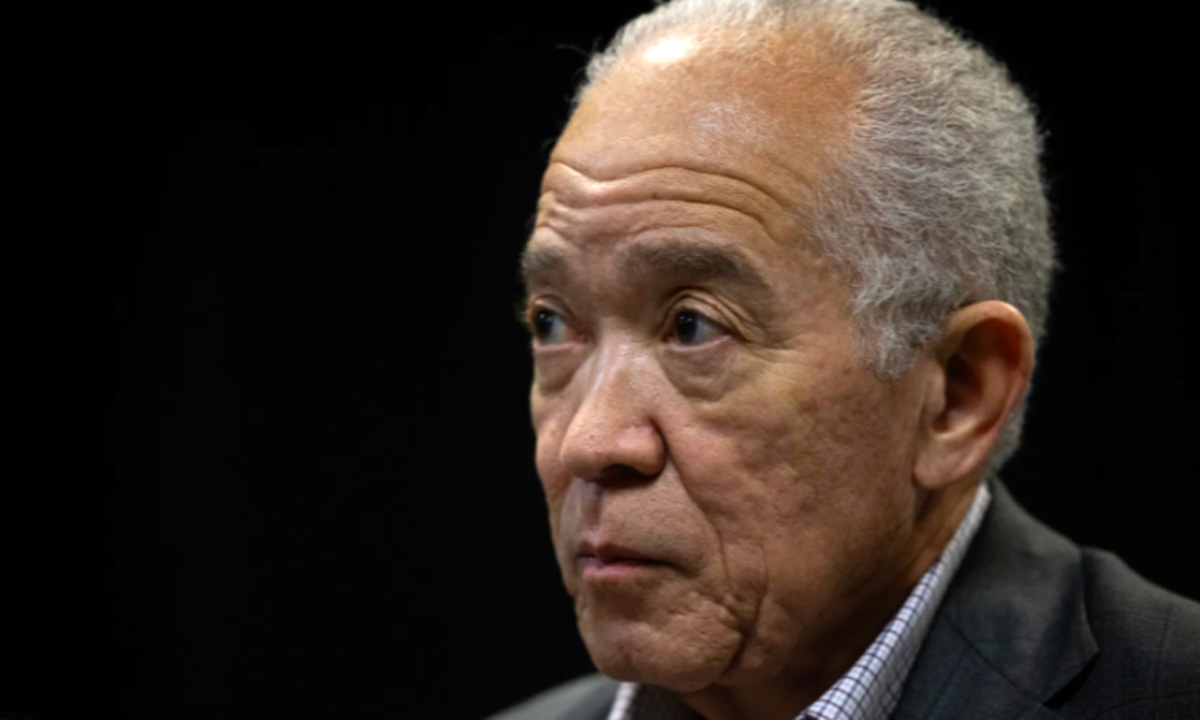Houston ISD Voters Reject Bond, Delivering Rebuke of State-Appointed Leadership
Many voters saw the bond as a referendum on Superintendent Mike Miles’ leadership, with his critics rallying behind the slogan, 'No trust, no bond.'

Get stories like these delivered straight to your inbox. Sign up for The 74 Newsletter
This article is part of The 74’s EDlection 2024 coverage, which takes a look at candidates’ education policies and how they might impact the American education system after the 2024 election.
Houston ISD voters resoundingly rejected a $4.4 billion school bond package Tuesday, a victory for opponents of the district’s state-appointed leadership and setback for the district’s years-long push to upgrade campuses.
About 58 percent of voters opposed the bond package, which promised to rebuild or significantly renovate roughly three dozen schools, improve campus security, upgrade schools’ heating and cooling systems and expand preschool offerings, among other changes. The school bond proposal was the largest in Texas history, and it became the first Texas school bond totaling $1 billion or more to fail after the previous 23 passed.
HISD’s last school bond vote, held in 2012, received support from two-thirds of district voters.
The vote came a year and a half after a controversial June 2023 state takeover of HISD, in which the Texas Education Agency installed a new superintendent, Mike Miles, and school board. Since then, Miles has carried out a dramatic overhaul of the district, turning HISD into one of the largest education experiments in the country.
The bond vote garnered extra attention because it represented community members’ first opportunity to vote on an issue that will meaningfully impact district operations since Miles’ appointment. Many voters saw it as a referendum on Miles’ leadership, with his critics rallying behind the slogan, “No trust, no bond.”
Steve McHenry, 76, who cast his ballot at a polling location in Houston’s Frenchtown neighborhood, said he was voting against the schools package because of issues with the district’s leadership. All his children attended HISD schools but are now grown, he said.
“I don’t like the superintendent and I don’t like the state running (HISD),” McHenry said.
Usually, large Texas districts pass bonds roughly every five years to keep campus facilities up to date, but HISD hadn’t held one for 12 years. In that time, the district has put off roughly $10 billion worth of needed maintenance and repairs, HISD administrators said during several bond-related meetings. The $4.4 billion total represented HISD’s most immediate needs for safe and healthy learning conditions, they said.
The district will now have to pay for some of those upkeep costs out of its general fund, leaving less cash for other operating expenses, such as staff salaries.
Miles expressed frustration with the bond result in a statement HISD released Tuesday evening, arguing students across the district would bear the brunt of the community’s decision.
“In this instance, the politics of adults beat out the needs of our children,” Miles wrote. “I cannot promise our aging facilities and systems will never be a barrier to student learning. We will do our best to keep long expired heating and cooling systems running, but on very hot or very cold days, we are likely going to have to close campuses to keep students safe.”
Jackie Anderson, president of the Houston Federation of Teachers, HISD’s largest employee union, celebrated the early voting results as a sign that a wide coalition of community members oppose HISD’s leadership. She hopes the vote encourages Miles and his team to take the union’s concerns more seriously.
“We hope that this sends a resounding message to them that we’re not going away,” Anderson said. “It would behoove them to sit down and talk to us.”
Two education advocacy nonprofits that have been high-profile bond advocates, Good Reason Houston and Houstonians for Great Public Schools, released statements shortly after early voting results were published that treated the bond result as a defeat. Both groups are backed by some of Houston’s wealthiest philanthropists, who helped raise about $2 million to support the bond through a political action committee.
“We are deeply disappointed that the HISD bond measure did not pass,” Good Reason Houston CEO Cary Wright said in a statement. “This outcome means we must continue to work within the current insufficient infrastructure, even though we know students deserve and need more.”
Because HISD typically has held bond elections during the November of even-numbered years, the district may be at least two years away from another bond vote. If leaders choose to wait until the state returns power to a locally elected school board, the timeline would likely extend until at least the 2028 election.
This article first appeared on Houston Landing and is republished here under a Creative Commons license.
Get stories like these delivered straight to your inbox. Sign up for The 74 Newsletter

;)